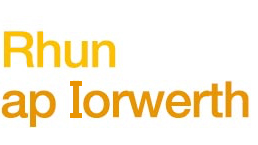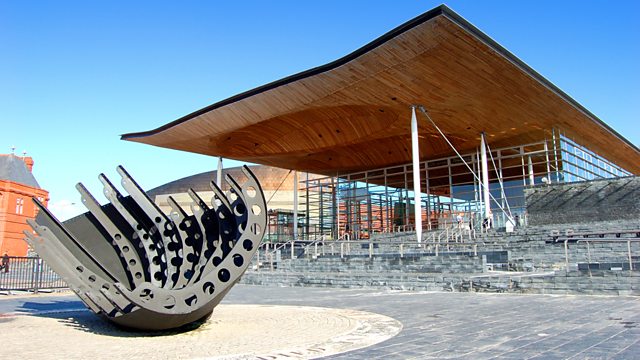Yesterday, thirty writers, actors and other well-known figures in Wales signed a powerful open letter calling for the renaming of the National Assembly as ŌĆśSeneddŌĆÖ, Welsh for ŌĆśparliamentŌĆÖ. They include actor Michael Sheen, Radio 1 DJ Huw Stephens, Cerys Matthews and rugby referee legend Nigel Owens.
Today Plaid Cymru will joined them on the steps of the Assembly as we urge our fellow AMs to embrace this move as a sign of a united and confident new Wales.
ItŌĆÖs part of a rebranding thatŌĆÖs already underway to emphasise that this is now a fully-fledged parliament, a world away from the under-powered Assembly established in 1999. But letŌĆÖs use that rebranding, not to opt for the unimaginative ŌĆśWelsh ParliamentŌĆÖ, or even a bilingual version, ŌĆśWelsh parliament ŌĆō Senedd CymruŌĆÖ, but rather to make a statement through an original, indigenous and unique Welsh name that would be a powerful message about the kind of democracy we want.
Devolution and the growth of Welsh democracy mustnŌĆÖt be about emulating or borrowing the concept of democracy from elsewhere, including that other place that sometimes calls itself the mother of all Parliaments. WeŌĆÖre saying weŌĆÖre doing something differently in Wales.
Senedd comes from the same root as Senate. It crystallises our history in many ways ŌĆō an assimilation of our history and our Celtic and Romanitas traditions coming together in one word. ItŌĆÖs the same word in old Cornish, ŌĆśsenedhŌĆÖ, and in Breton, ŌĆśsenezhŌĆÖ, and also the upper house in the Republic of Ireland, the Seanad. And Owain Glynd┼ĄrŌĆÖs Parliament was a ŌĆśseneddŌĆÖ too, of course.
That Roman Senedd, Senatus Romanus, met in a half-circle, as we do, rather than the other tradition that we have seen in WestminsterŌĆöwhich, unfortunately, has been at its very worst over the past weeks and months, where confrontation is all.
Sticking to Senedd shows that we have our own unique identity, history and future | @RhunapIorwerth https://t.co/KABHDMhn4m
— Nation.Cymru (@NationCymru) November 9, 2019
Brand
But having a unique name that is based on our history doesnŌĆÖt just say that we have our own tradition. It also says that we have our own future. We can create our own unique democracy.
When new democracies are formed, the naming of things, symbols, are important, because they say something about what youŌĆÖre trying to create. This is normal across the world. Think of the D├Īil, the Knesset and the Duma, for example.
We donŌĆÖt simply want to recreate the parliamentary tradition that has existed elsewhere; we want to create a Parliament that is fit for us, that belongs to us, that is part of our history and our tradition, yes, but also says something about a different kind of democracy that could be made here in Wales.
ŌĆśSeneddŌĆÖ is a unique name and it adds to our identity. It gives this institution our international reputation and adds to our brand as a country. There would be no other ŌĆśSeneddŌĆÖ in the whole world.
LetŌĆÖs use that fact to confirm our status as a nation with its own language and culture, and a unique name for its legislature.
Some words transcend language barriers. The Welsh language, needless to say, belongs to us all, but there are some words, in particular, that in practical and usage terms genuinely belong to us all.
There are words that slip easily from one linguistic context to another, and ŌĆśseneddŌĆÖ is one of those wordsŌĆöa word that is of Wales, a word rooted in the Welsh language, that is bilingual in its application.
What better application for such an inclusive word than as the official name of our national democratic and representative institution?
Welsh is a language for all, and the Welsh language peppers conversations from Gwent to Wrexham, from M├┤n to MonmouthshireŌĆöŌĆÖcwtshŌĆÖ, ŌĆśtadcuŌĆÖ, ŌĆśhiraethŌĆÖ, ŌĆśhwylŌĆÖ, ŌĆśeisteddfodŌĆÖ. LetŌĆÖs have ŌĆśSeneddŌĆÖ as part of the everyday language of everybody in Wales.
Consensus
The argument that you either speak Welsh or you speak English, and therefore you need a Welsh name for Welsh speakers and an English name for English speakers is wrong. LetŌĆÖs not put people into inflexible linguistic categories.
Rather, what we have is a linguistic continuum, as the GovernmentŌĆÖs proposals for Welsh in the new education curriculum demonstrates.
In tabling the amendment this week (for the second time), to take the ŌĆśSeneddŌĆÖ proposal to a vote, I was determined to take a consensual approach. This is way beyond party politics. IŌĆÖm delighted that a number of Labour members have already signed up to support it. Now itŌĆÖs up to the Labour Welsh Government to come on board. It holds the balance in this decision.
A building of cross-party consensus on the matter means members are likely to be called Aelod oŌĆÖr Senedd, or Member of the Senedd in future. We already call the building iutself the Senedd. ItŌĆÖs a small but significant step to giving that official name to the institution itself.
LetŌĆÖs be confident in ourselves, uniting the nation behind the name that belongs to everyone regardless of their language, reflecting both our heritage and the dawn of a new kind of democracy.
This is our Senedd, a unique name for a unique Parliament.


